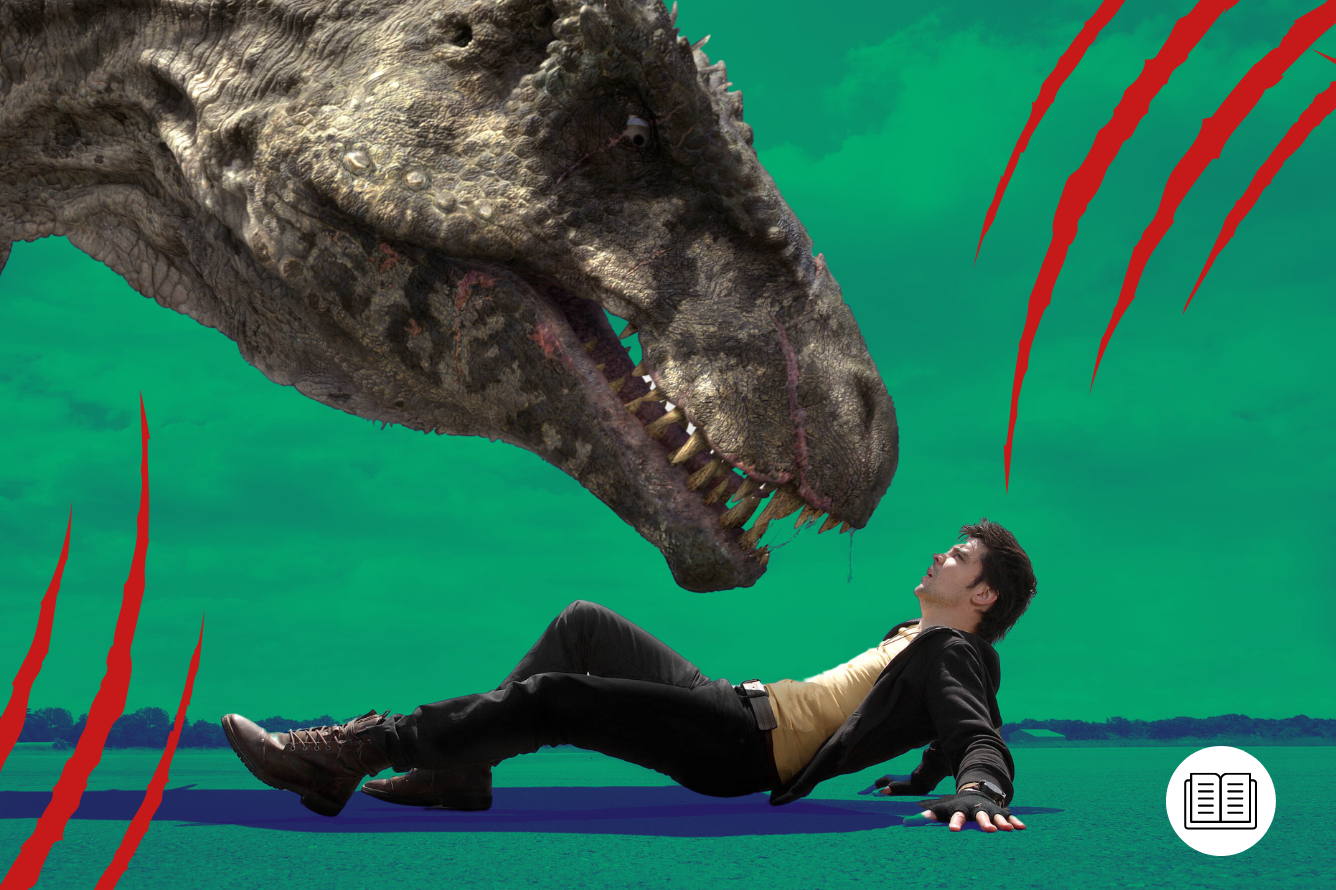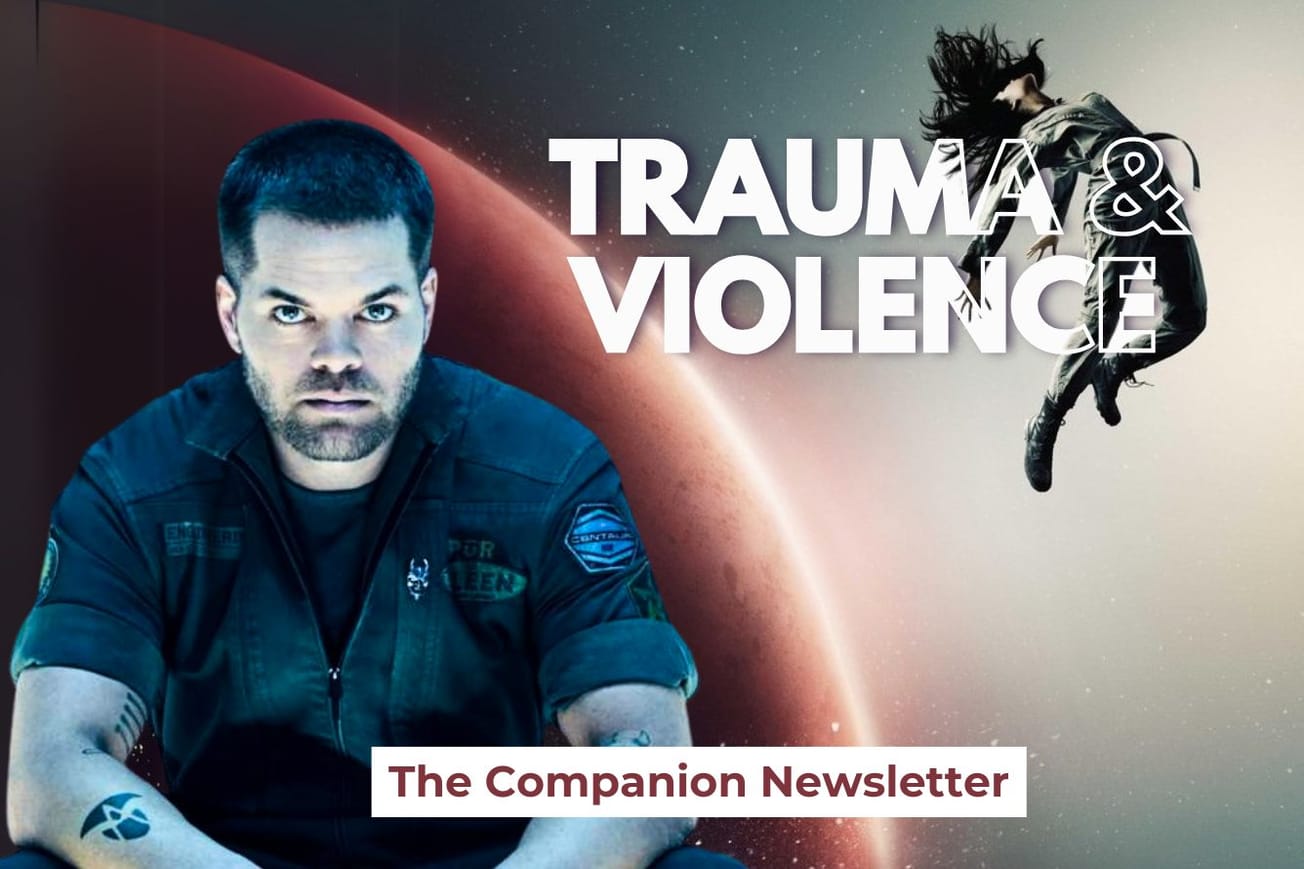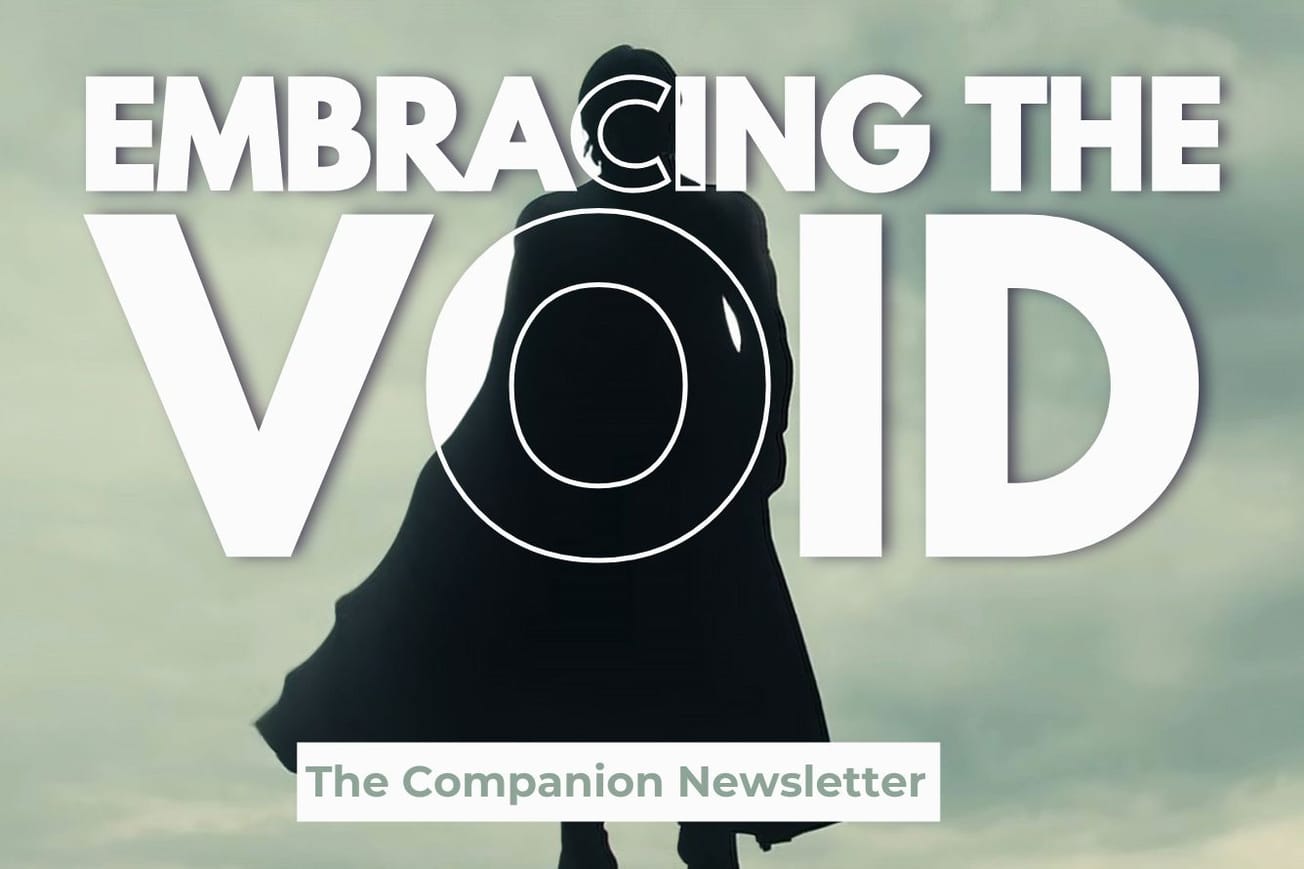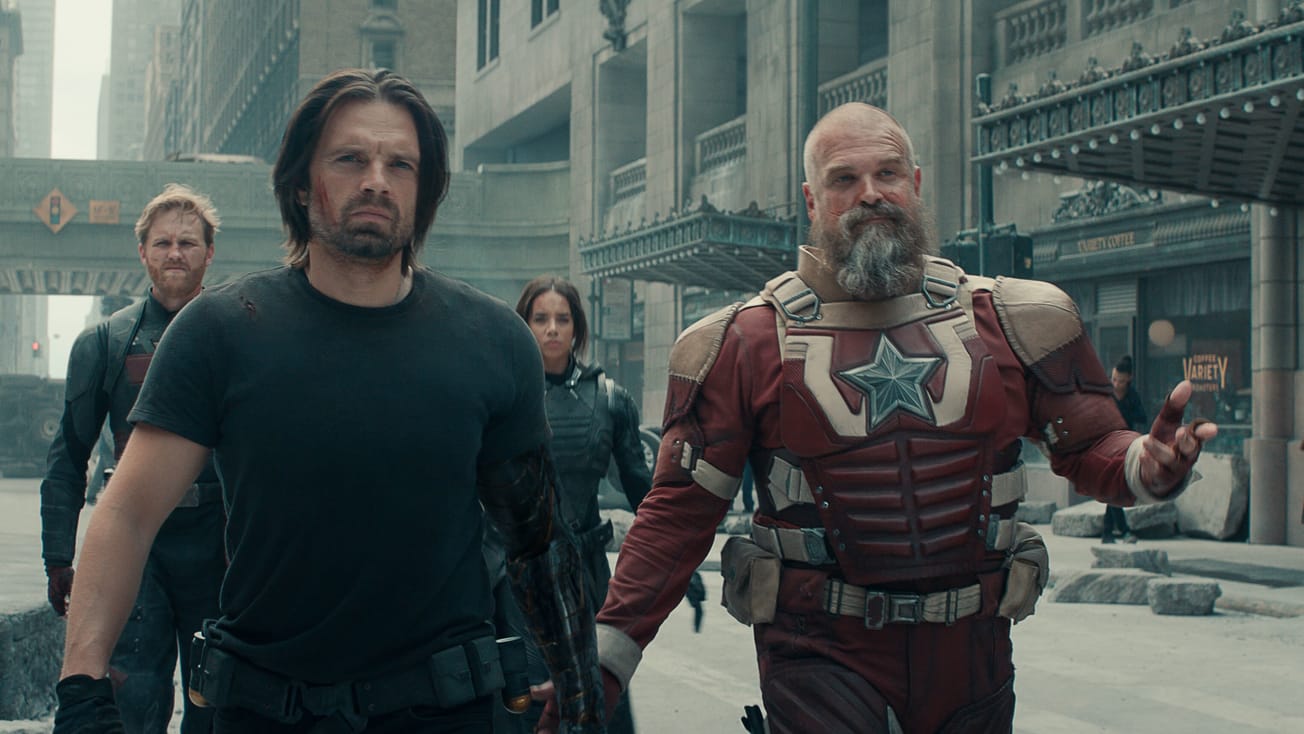ITV ‘dinosaur sci-fi’ show Primeval may have ended in 2011, but there is still an active Reddit community tossing back and forth theories about which season was best and why Cutter had to die. There’s also a hilarious comment from 14 years ago that reads, “No agency charged with policing breaks in the fabric of space and time would be as poorly run as the ARC.” I mean, sure.
But there’s no denying that while Primeval finished after five digs, it’s still amongst the most audacious and flat-out fun series that modern primetime has ever produced, pushing the boundaries of small-screen FX (on a British telly budget) and giving Doctor Who more than a run for its money. It also spawned a short-lived North American spin-off, Primeval: New World, which kept Martin Wood, Andy Mikita, and Amanda Tapping busy behind the camera following the extinction of Stargate.
It’s probably less remembered for some of its lower-profile achievements – turning Dougie Henshall into a bona fide TV star, helping Hannah Spearritt move on from S Club 7, and fueling gossip magazine pages thanks to her relationship with co-star Andrew-Lee Potts, as well as being at the forefront of co-pros and cable partnerships that are now a media fundamental.
As Told By
- Adrian Hodges (writer/executive producer)
- Hannah Speaarritt (actor/Abby Maitland)
The Beginning at the BBC – Cutter’s Bestiary
“It was about 2003, [co-creator] Tim [Haines] and I had worked together, although we hadn’t actually met, on The Lost World,” explains writer Adrian Hodges, who created the show and would be in charge throughout its run.
Hodges was a journalist-turned-screenwriter who had made his name adapting literary classics. Haines was a “dinosaur guy” and special effects whiz who’d struck it big with Walking with Dinosaurs. The BBC was keen to know what both wanted to do next.
One of the scripts Haines had given to the Beeb had the terrible title Cutter’s Bestiary and it was languishing on the desk of drama head Laura Mackie.
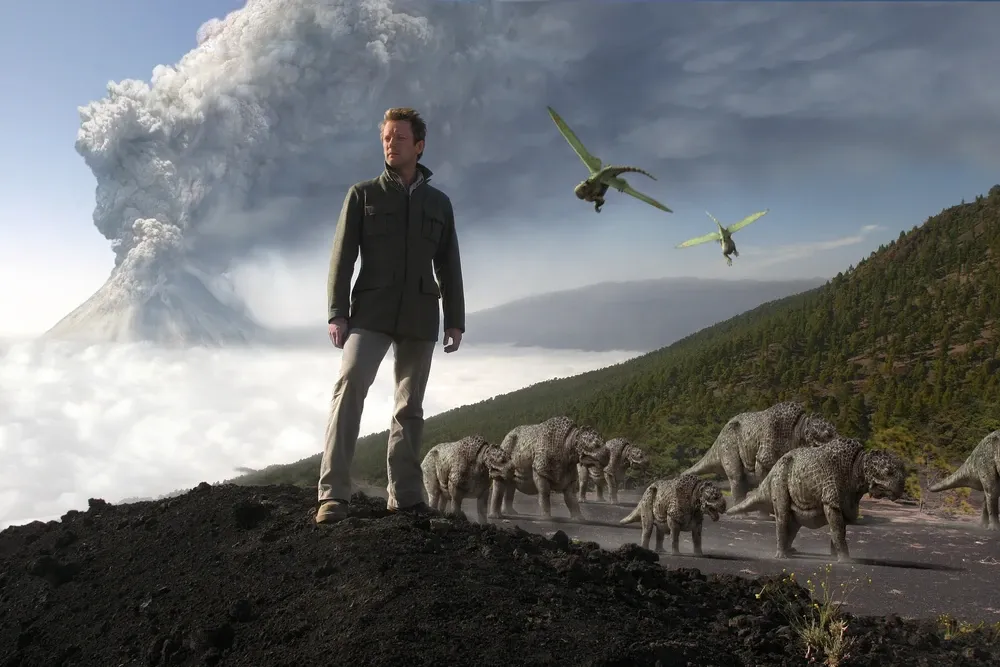
“I genuinely have forgotten who wrote the original script of Cutter’s Bestiary, but I remember Laura thinking it wasn't up to much,” says Hodges. “I remember her surprise at my interest in picking up Tim's project which at that time was going nowhere.”
Hodges didn’t like the story much or the title but saw something he could develop. He had a vague idea about a wife lost in time as well (which would end up manifesting as Juliet Aubrey’s Primeval character Helen).
He sat down with Haines to talk. “The idea was there should be dinosaurs in the supermarket and things like that,” he reveals. “We agreed on that, but we didn’t agree on the script at all.”
After they met, Cutter’s Bestiary was ignored as they forged a new narrative arc.
“He’s not just a science guy, he’s got loads of story ideas,” laughs Hodges about his partnership with Haines. “I tease Tim that he thinks having the idea is the same as writing the script, but he’s a good guy to work with. It was a collaboration.”
While the BBC was initially keen, commissioning scripts and spending a lot of time developing the first series, an immutable force emerged in the guise of Russell T. Davies’ Doctor Who reboot.
“Our original producer was Paul Rutman and he shepherded us through three scripts which should have been enough to convince the BBC to make the show,” says Hodges. “Barring one or two tweaks and new scenes the scripts were pretty much identical to the ones we later filmed for ITV. It is probably worth stating both Tim and I had pretty much given up hope of getting the show made thanks to the large shadow of Doctor Who - although I never saw our two shows had anything in common other than the same genre. Ironically, it was ultimately because of Doctor Who's success that ITV decided they needed a sci-fi show of their own.”
With the BBC out, ITV – worried about losing the Saturday night drama battle to their public rival – was in.
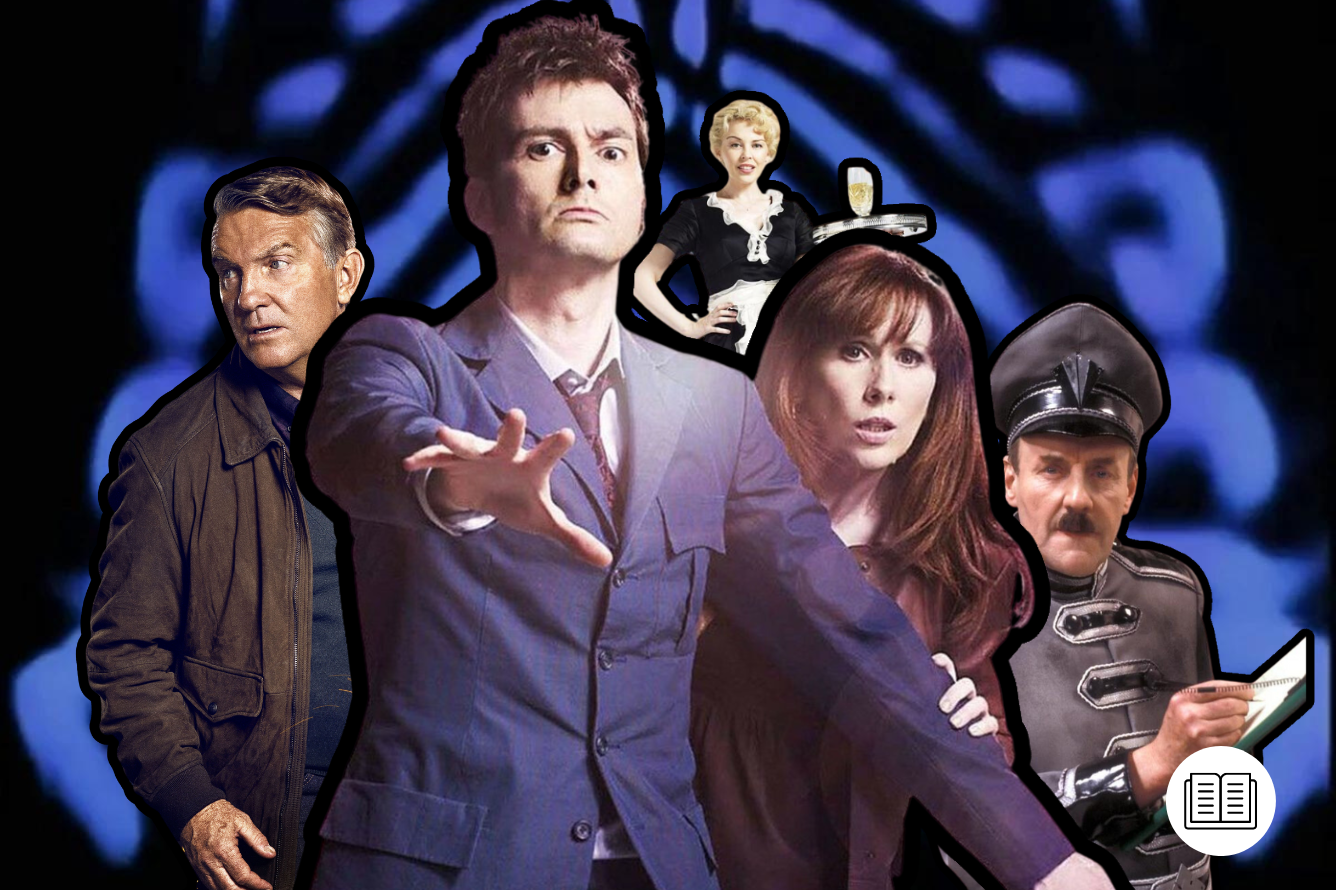
Finding the Primeval Team
Hodges’ intention had always been to recreate the gang aspect of Buffy the Vampire Slayer, alongside the mystery and intrigue of Lost, and finding the ensemble was going to be crucial to Primeval’s success. They had to be big enough to make people tune in every week, unselfish enough to know that they were often playing second fiddle to the special effects, and fun enough to work on primetime ITV.
“We went through a list of stars,” remembers Hodges. “Some people turned us down – I can’t remember who now – who didn’t want to be in a dinosaur show.”
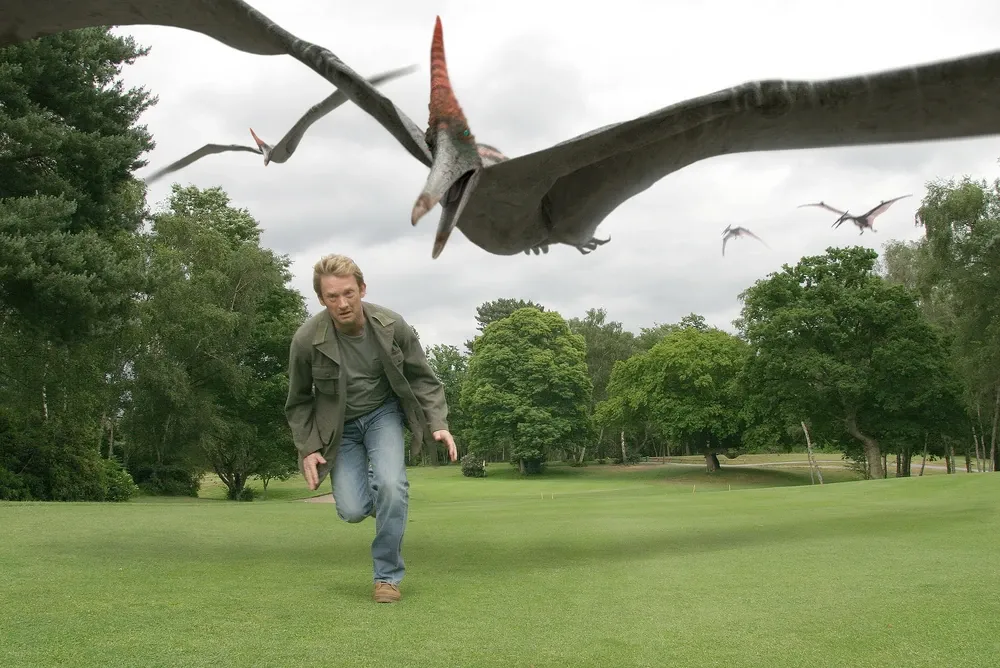
As the rest of the cast was filled out with TV stalwarts like Juliet Aubrey, Ben Miller, and James Murray, the search for the show’s leading man became increasingly exhausting and exhaustive.
“Dougie was looking for something new,” says Hodges, on finding their Nick Cutter in Scottish actor Douglas Henshall. “He was a good man, Dougie. It took some convincing, but he went all in. In my opinion, the show never quite recovered when he left during Season 3. It’s a decision I still regret to this day.”
One of the actors who got the tabloids buzzing was Hannah Spearritt, then best known as a member of S Club 7, but a trained actress.
“After S Club, I kind of hit a point where I just needed time away from the spotlight,” Spearritt says now. “I felt a little bit out of the loop in terms of am I ready? Am I good enough? I went to a few you know private one-on-ones, went to the Actor’s Centre. It was probably fear-based!”
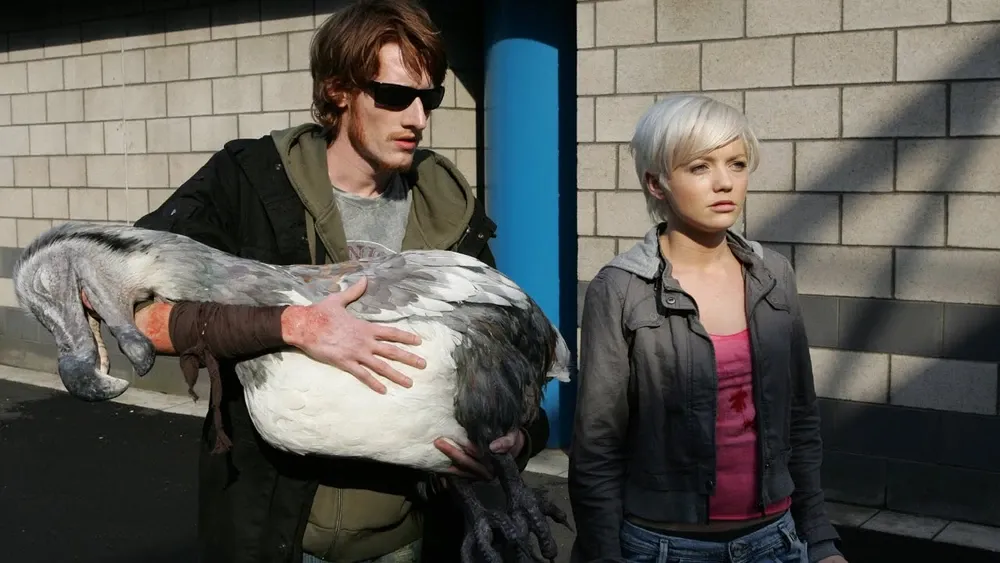
“Hannah was great, she knocked her audition out of the park,” recalls Hodges. “She was Abby right from when she walked through the door.”
“I met Cilla Ware who was directing the first three episodes,” reveals Spearritt. “I remember after my first audition she took me to this other room where she was just like, ‘So we’ve got this idea of this little, like, dragon that's going be Abby Maitland's pet.’ She was like, ‘I just want you to sort of walk around the room and see him there, and then he’s over there and then maybe go up and talk to him’, because that was a big part of Abby’s role.
“Then from there, I think the next thing for sort of the audition process for me was to get me with their Connor. I think at that point they had Andrew-Lee Potts in mind. They were like, ‘Yeah, you come in and read with him and see if there’s chemistry there.’ And there was chemistry there!”
(The pair ended up falling in love in real life – they were engaged between 2008 and 2013).
Interestingly, Hodges says that Abby was originally intended to end up with Stephen (James Murray) during that first season. “Her chemistry with Andrew was so much stronger, it just worked better,” he says. “I changed those scripts to accommodate that.”
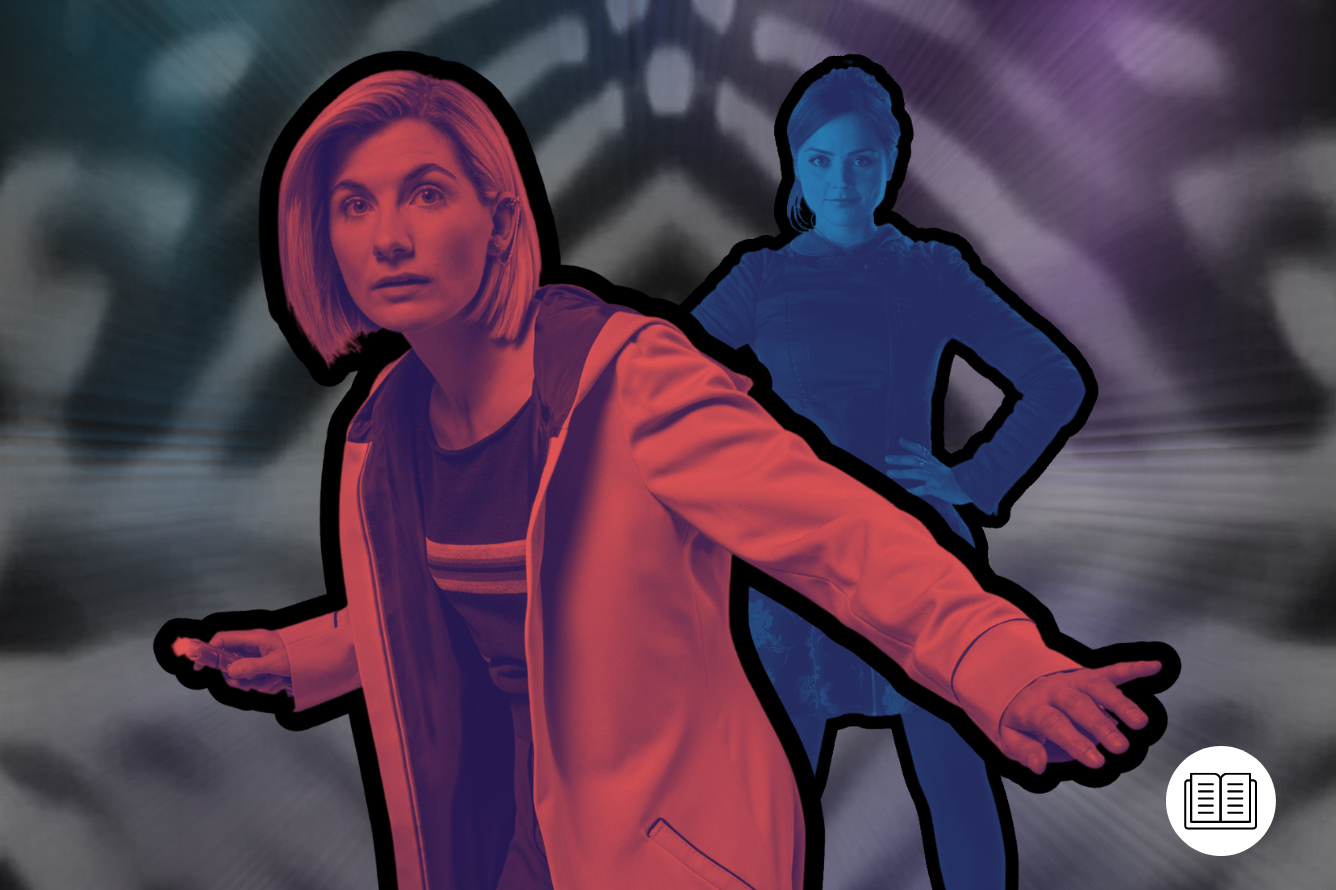
The Monsters of Primeval – and Rex
With a budget of well over a million pounds per episode, a lot at the time for a British show, a lot of hard work was put into making the FX look Jurassic Park-worthy.
Effects house Framestore, who had collaborated with Haines on the Walking… series did the first three series, with The Mill taking over for the seasons four and five.
“The excitement was building because we were getting to see how good these [things] were looking,” says Spearritt about pre-production. “We began to see the visuals – we were taken aback and thought we could be on to something.”
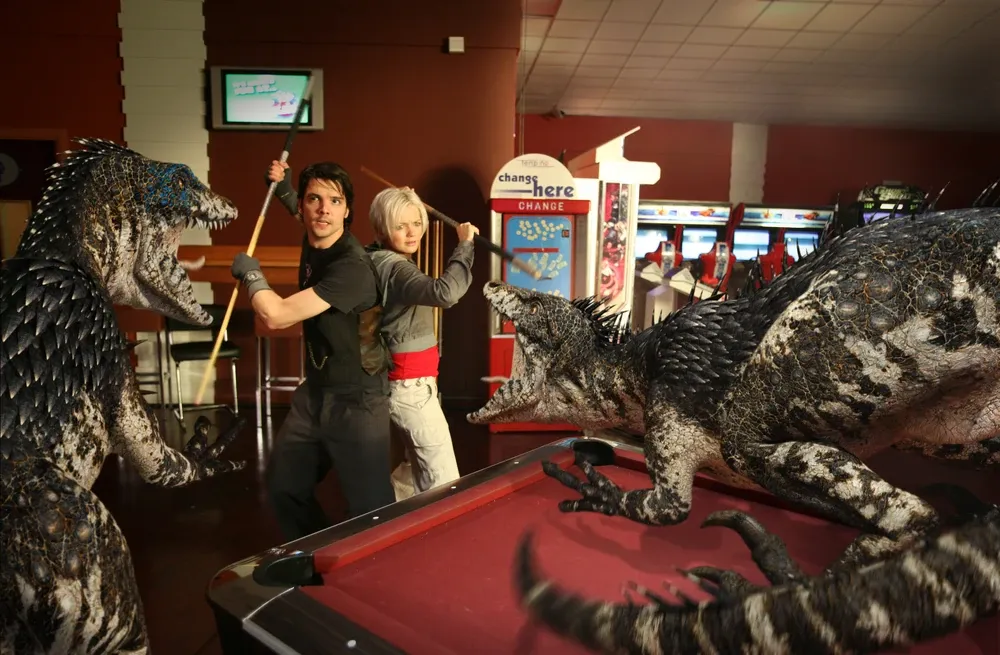
“ITV were so great and very hands-off,” says Hodges, adding that the channel didn’t stick their oar in about budget until the latter seasons.
“They made it really easy for us because we had essentially somebody always on set becoming the dinosaur or you'd have a man with a stick and then you’d draw a silly face,” explains Spearrit.
“For us, it was just making sure you’re reacting right. It could easily go wrong. One person thinking the dinosaur is looking at you nicely and then the next person thinks it's got an open mouth or whatever. We’d all just turn around each other just to make sure we were doing the same thing!”
“I remember that great episode I love so much, in Spiderworld,” remembers Hodges. “I asked Tim what’s the creepiest thing in the world and he said spiders. I said, ‘Have you got any Jurassic spiders?’ He said not Jurassic, but that kind of early period. So it seemed natural to do.”
One of the most effective elements in the series was Rex, a Coelurosauravus from the Permian period that got marooned on Earth during the present day and which Abby adopted as a pet.
“I found the close-up shots with Rex the hardest,” says Spearritt. “But they actually built a little animatronic… They’d send him off to surgery because he would break down, but when he was present then it became very easy.
“Animatronic Rex was retired after the first season and actually was only in the first two episodes, I think,” counters Hodges. “Once the actors were used to the bloke in a green suit waving a balloon option, animatronics were too expensive and limited by comparison – CG offered a much bigger range of expression and movement.
“I’m pleased to say that animatronic Rex still sits in a cupboard here at home - he has to be protected from sunlight as he was looking a bit blotchy and knackered.”
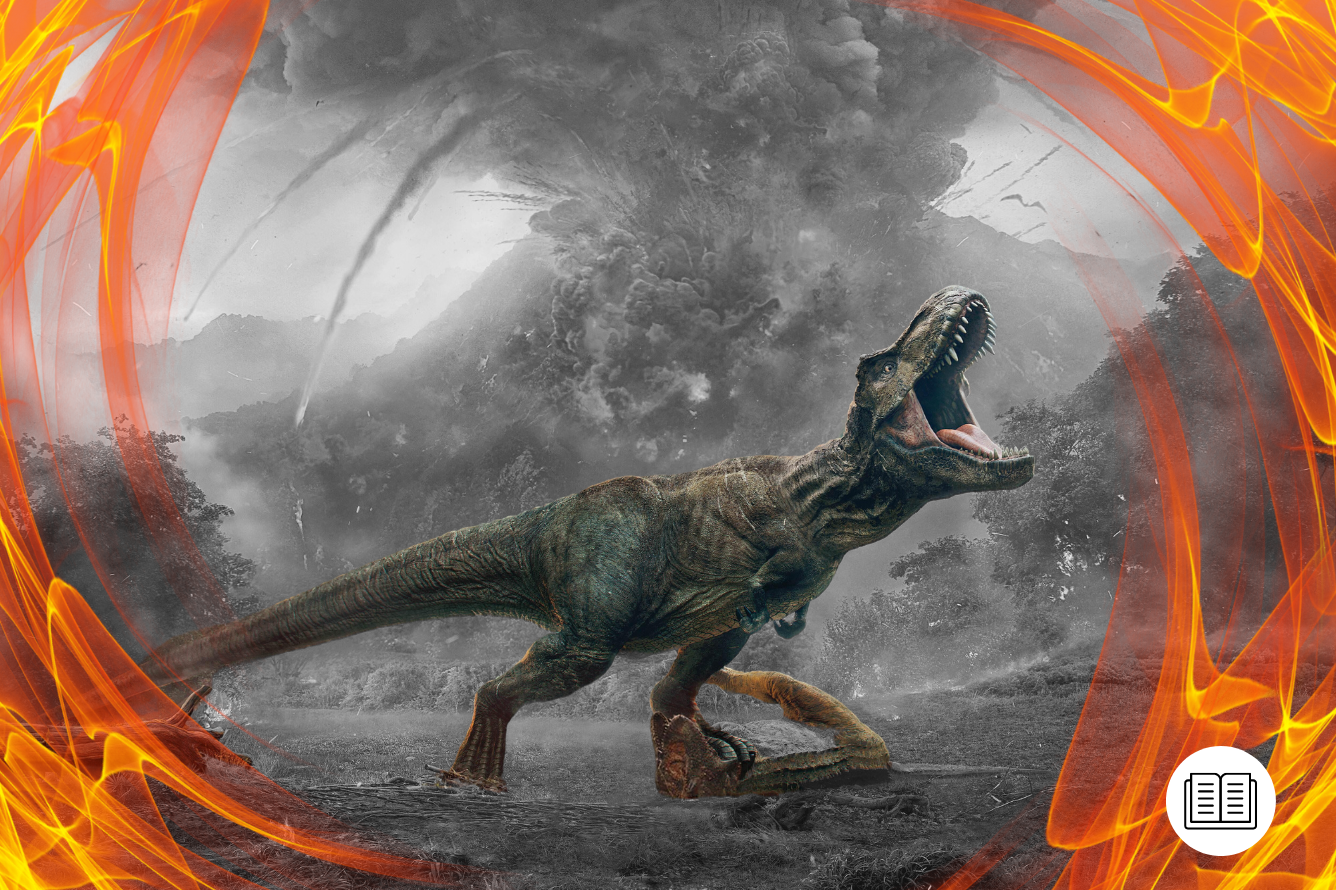
Changing Budgets, Changing Casts
What is often forgotten about TV towards the end of the Noughties was it too was dealing with the credit crunch.
Despite a successful first season both critically and audience-wise, ITV was losing the profile battle with Doctor Who (unsurprising considering Primeval was a new show versus Who’s decades-long history) and waited to bring back Primeval for its second run.
“The first law of TV is if you have a successful first season – which we incontrovertibly did – get the second season on the air as soon as possible to keep the brand fresh in people’s minds,” says Hodges. “ITV chose not to do that as they were trying to make a Saturday teatime slot into a kind of Doctor Who-type thing and chose to put another show up instead of our second season. So it was something like 20 months after our first season had finished that the second season finally got on the air.
“We lost a million viewers and never got them back which is a continuing source of regret and disappointment. I don’t want to be too critical of ITV because they genuinely believed they were doing the right thing, but there is no question the scheduling messed us up and the show never quite recovered its momentum.”
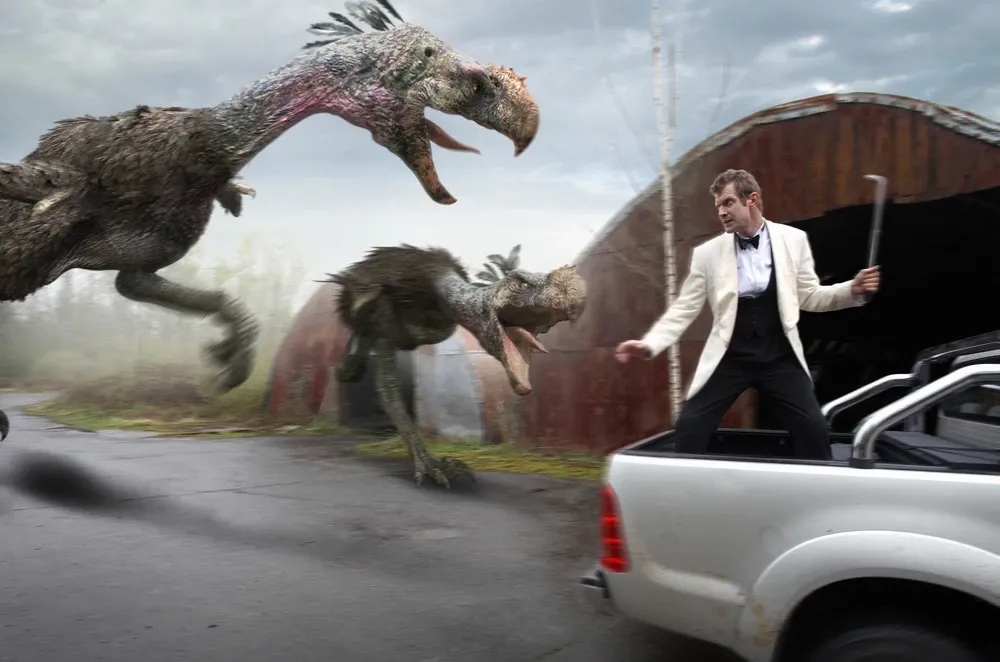
Henshall also decided to leave during Season 3 (replaced by Jason Flemyng and subsequently Ciarán McMenamin) and the show was even canceled briefly by ITV (unknown to the filmmakers until it happened) before being brought back for a truncated Season 4 and Season 5, when it moved shooting to Dublin for financial reasons, partnering with UKTV channel Watch.
“We did feel that all going on,” remembers Spearritt. “I guess the span of a series of five seasons, there’s going to be changes, and yeah, the changes were quite huge in terms of having to move to Ireland because of budget reasons. Huge cast changes as well. But they're all chapters, you know? You just adapt and you want new energy sometimes coming in and there might be a few too many people killed off maybe, but you know…”
The Legacy of Primeval
The six-episode final season finished airing at the end of June 2011, with particularly high praise given to the finale.
“Although Tim and I still feel frustrated by what we both felt to be Primeval’s premature end, we are immensely proud of what we achieved with it,” says Hodges.
“I haven't watched it again for a few years, but I could happily watch it all again tomorrow and it remains consistently one of the most popular shows I ever wrote.”
“I think getting it commissioned was a real triumph,” he adds, “because at that point it was dead. The fact that nearly 20 years after it was first shown we are still talking about it, I do find heartening.”
“I don’t want to sound too egotistical, but it did feel like we were doing something hugely different,” says Spearritt. “They were taking risks. And it was fun – one of Jason Flemyng’s finest moments was doing a moonie during one of the takes, that will always make me giggle.”
There were literary sequels, including well-received books like Extinction Event by Dan Abnett, while Canadian TV broadcast one 13-episode season of spin-off Primeval: New World which saw Potts reprise his role for the handover.
A movie adaptation was announced by Warner Bros. just after the series finished but has yet to be realized. Although, according to Reddit, it would still be well-received.
Plot ideas from Redditors include bringing back Flemyng and having the ARC made public; featuring clones of Cutter and Stephen; setting it in the multiverse; focusing it entirely around Future Predators; or making a film version of Extinction Event.
As for Spearritt, she’d be up for it.
“Did you question Adrian about writing a comeback?” she laughs. “I think it could work.”


